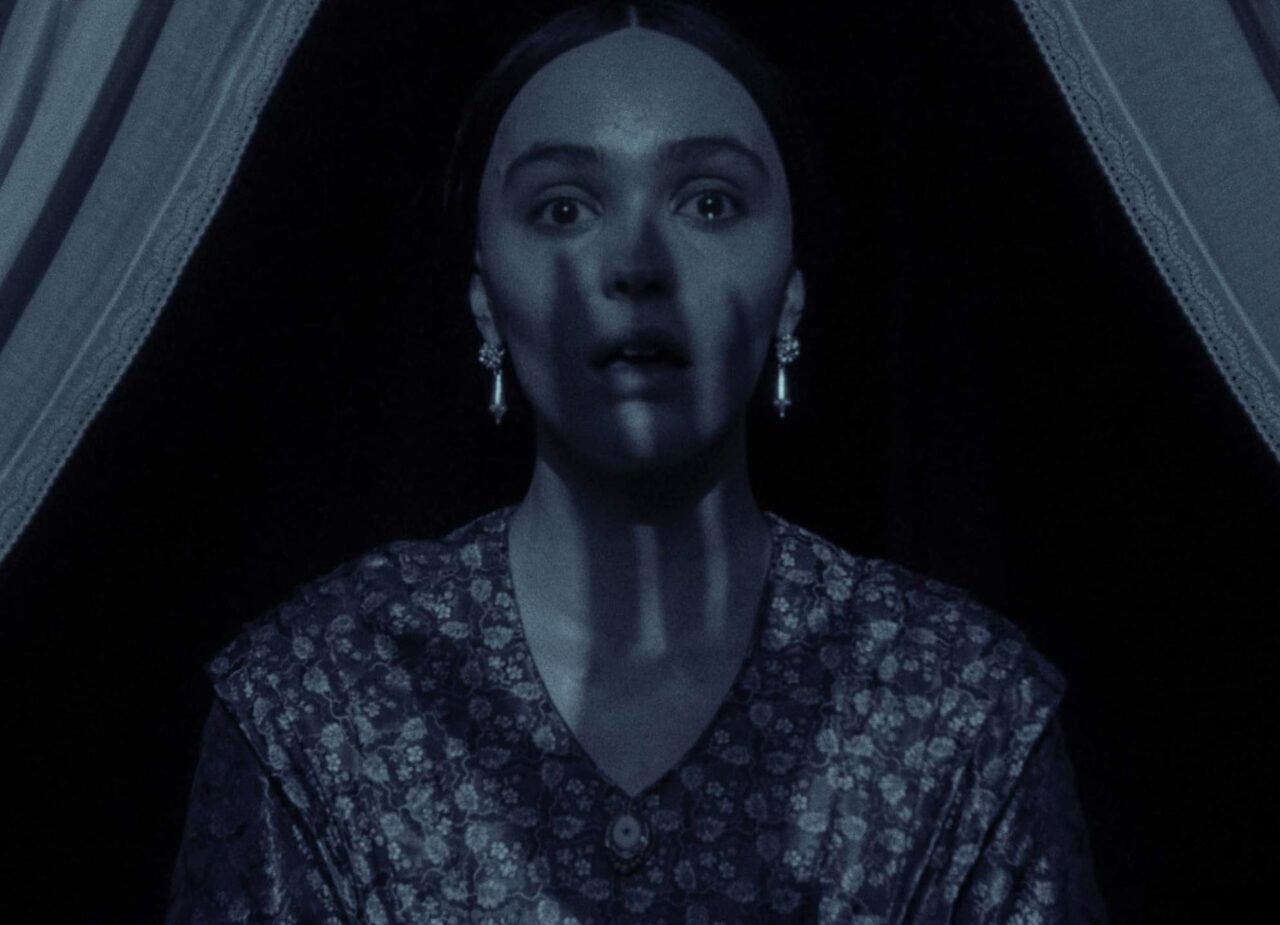When it comes to creating an aura of occult menace and eerie atmospherics, Robert Eggers’s Nosferatu is a triumph. His is such a rare talent that it seems almost unnecessarily picky to note the film’s unevenness, with sensational sequences followed by weaker ones of uncertain effect. Nevertheless, I note with regret that Nosferatu can’t match either Eggers’s The Witch (2015) or The Lighthouse (2019) for bold unity of vision.
And of course, it can’t touch F. W. Murnau’s 1922 masterpiece, Nosferatu, which has inspired Eggers’s imaginative flights since childhood. Fortunately, this new version isn’t trying to match it, offering instead a different approach to the same source material, Murnau’s unauthorized appropriation of Bram Stoker’s 1897 novel Dracula, which was in turn sourced from Eastern European folklore. There’s no point trying to be a purist about vampires as a pop fiction subject — everybody is free to take a bite out of them.
And it’s been such a rough year cinematically, Eggers’s Nosferatu still gets a slot on my Best Films of 2024 list — the shortest list ever — because there are sections of Nosferatu that are so memorable, so well done, you may feel slightly uncomfortable alone in the dark well into the new year.
Perhaps the film’s most brilliantly spooky sequence involves the journey of Thomas Hutter (Nicholas Hoult), a young German estate agent, to a remote castle in the Carpathian Mountains of Transylvania owned by a mysterious old-money client, Count Orlok (Bill Skarsgård). Though he’s warned away from what is believed to be a vampire’s castle by the Romani people he encounters, who either scorn him or pray for him, Hutter is broke and desperate to prove himself to his new employer, Herr Knock (Simon McBurney), a strange fervent little man who insisted he make this trip. Hutter is worried about supporting his new bride, Ellen (Lily-Rose Depp), who is subject to fits of melancholia and…
Auteur: Eileen Jones

